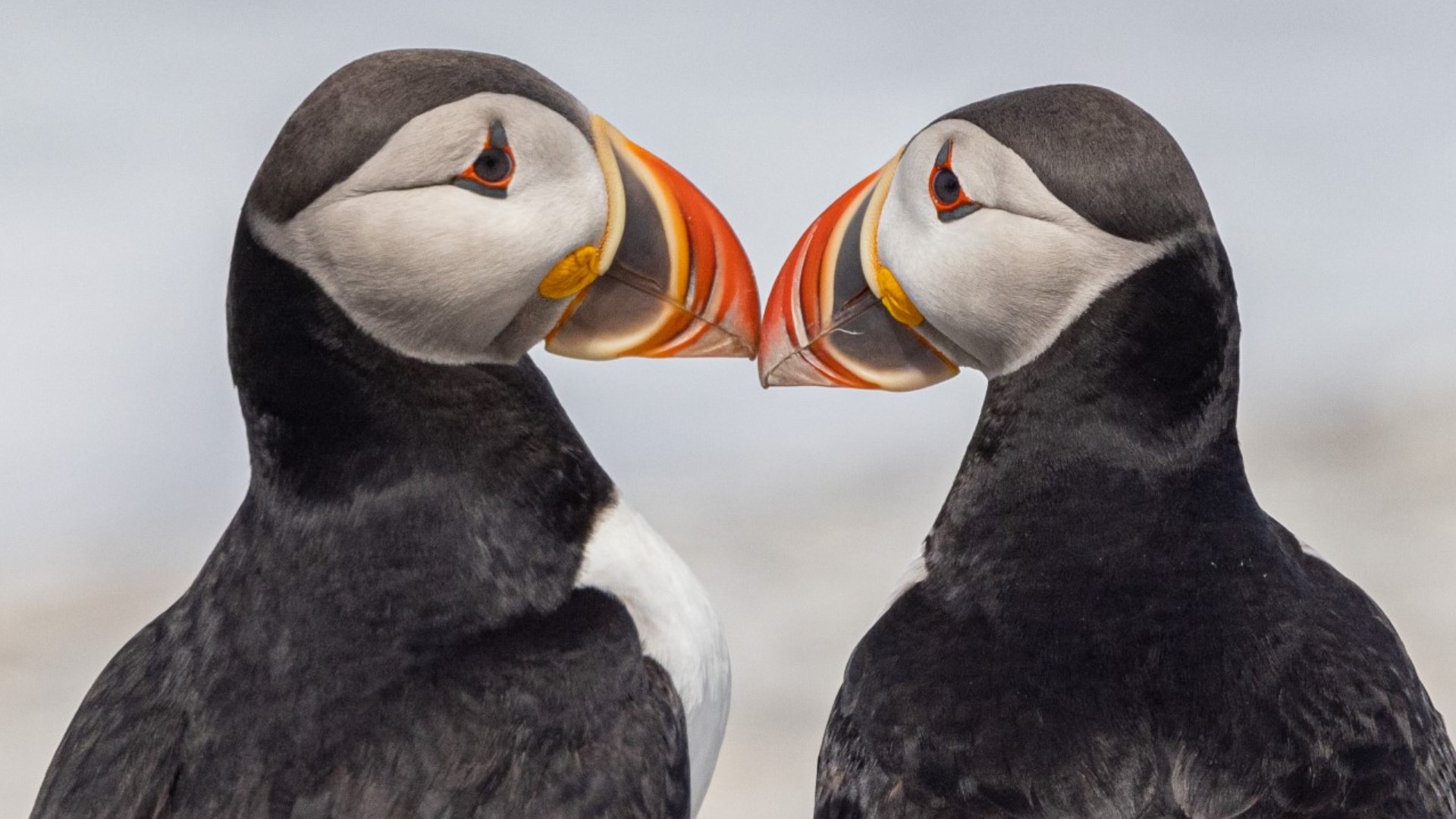MAINE, USA — It started for us here at NEWS CENTER Maine with a cute puffin camera on Seal Island, something we would share live in our 4 p.m. newscasts from time to time.
After a few years, we wanted to learn more about what we were actually showing, and have since adopted our own puffin through part of a fundraiser for the National Audubon Society's Seabird Institute. As we learn more about our puffin, EN78 (we are open to name suggestions ... more on that to come), we can share more about the conservation efforts of the Audubon Society.
We spoke with Don Lyons, who is the director of conservation science for Audubon's Seabird Institute, about the past, present, and future of its puffin project. Lyons told us that 50 years ago there was just one small population of puffins on a Maine island, protected by a lighthouse keeper. Most of Maine's population had been wiped out through hunting and harvesting. Apparently, their feathers were quite popular in women's hats.
It was then that conservationists relocated a group of chicks from Canada to Maine islands, where the birds are now watched, studied, and protected through the summer months by biologists.
"Puffin chicks as it turns out don’t need support from their parents after they fledge, they’re fully capable and independent. They know how to forage and catch fish on their own, then they can grow and mature and can attract themselves a mate," Lyons said.
The population has now grown to about 3,000 on Maine islands, with 2,500 of them on islands that are protected by biologists.
"If you don’t manage their habitat, avoid islands becoming vegetated over, if you don’t protect them from predators like bald eagles, which we can protect them from just by being present on an island, if you give up those steps and kind of the other effects we as people, as a society, have on islands, we will lose puffins again," Lyons said.
The biologists are not only protecting the birds on the island, but they are also studying their habits and what they're eating. Lyons said it's a way to learn more about the types of fish populations within the ocean at the same time.
"The ocean here is changing. The Gulf of Maine is changing more rapidly than perhaps any other place in the global ocean and really warming quickly, and with that comes a lot of changes in what fish species are present and the abundances they have," Lyons said. "The puffins really tell us about those changes and that would be very helpful to not only understand how those changes affect puffins but also the broader ecosystem."
The National Audubon Society's Seabird Institute is funded primarily through private donations, generous foundations, along with some help from federal and state agencies, including the Maine Department of Inland Fisheries & Wildlife. You can learn more about supporting its efforts here.
"Puffins benefit from all of us thinking about how to be environmentally conscious and act sustainable in all of our actions," Lyons said.

